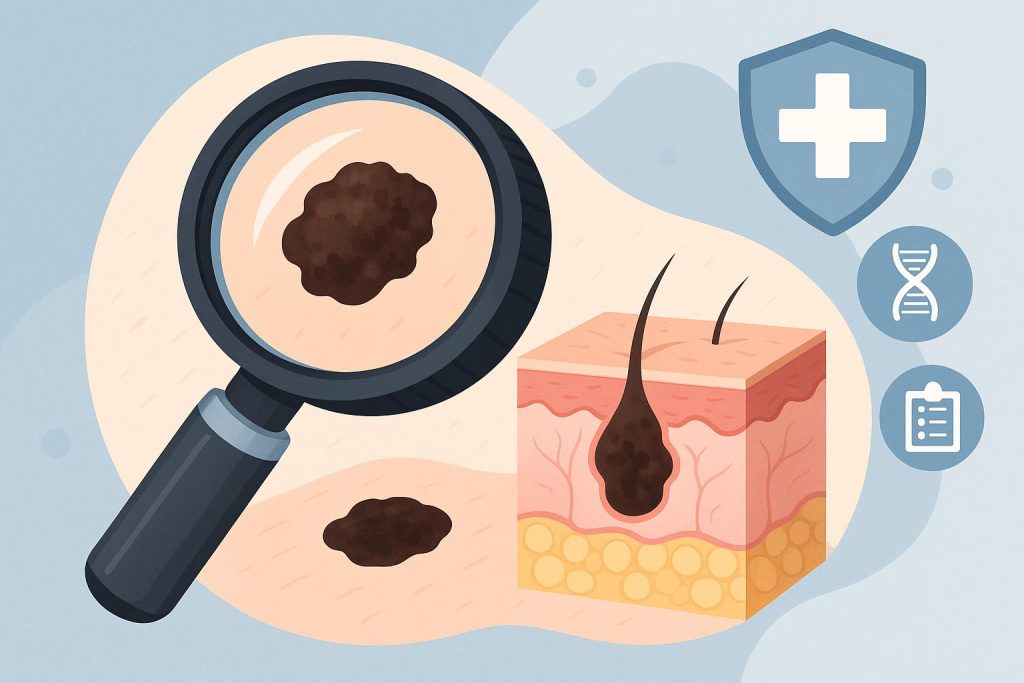Dr. Boutros Mikhail is a distinguished family physician in Toronto with over two decades of clinical experience spanning dermatology and chronic disease management. Trained at Cairo University and further credentialed through postgraduate work at Memorial University of Newfoundland, he brings a holistic, patient-first approach grounded in transparent communication and collaborative care. He currently serves more than 2,200 patients with services ranging from preventive screenings to the treatment of acute and chronic illnesses, and his bilingual fluency in Arabic and English supports a diverse community. As an Assistant Clinical Professor at McMaster University with advanced certifications—including emergency ultrasonography and advanced cardiac life support—Dr. Mikhail is widely trusted for evidence-based guidance on early detection and management of skin conditions, including skin cancer.
Skin cancer is the most common cancer globally. Unlike many other types, it does not develop deep inside the body but instead appears on the skin’s surface. This surface location allows people to see changes with their eyes. Early skin cancer detection prevents it from spreading to other body organs and lowers deaths. It also enables dermatologists to use less invasive treatments.
People can screen for skin cancer through self-checks at home or professional checks by dermatologists. A skin self-exam entails а full-body check for anything new or unusual, such as bumps on the skin or sores that won’t heal, even after weeks. People should also watch for moles that change size or color, growths that look like warts, or rough patches that bleed. These signs can appear anywhere on the body, so а head to toe scan is vital. For hard-to-reach areas like the back, а friend or partner can help. Spotting anything of concern should prompt seeing a doctor right away.
Professional full-body checks focus on identifying cancerous and pre-cancerous moles or lesions. The dermatologist may ask patients to point out visible moles or skin changes they have noticed. Patients remove makeup, jewelry, and anything covering the skin that hides spots to make the detection process easier. Dermatologists then conduct а scalp-to-feet check, using a handheld magnifying tool with light (a dermatoscope) to examine the spots in detail. Adding this tool to the naked eye exam improves accuracy for various skin cancers.
When dermatologists examine skin using a dermatoscope, they look for specific patterns that signal problems. If something looks off – e.g., changes in color or a spot that appears different from other moles on the same person – the dermatologist takes photos and performs a quick biopsy. The biopsy involves numbing the skin and taking а small tissue sample for lab tests. If the dermatologist finds no problems, they tell the patient when to schedule the next check. If they find issues, they discuss treatment and removal options.
Melanoma – which only makes up about 1 percent of all cases of this type – is the most dangerous skin cancer. It has the highest death rate. Without early detection, it spreads fast to lymph nodes and distant organs – causing survival rates to drop sharply. Early detection prevents spreading and raises survival rates to about 98 percent. Dermatologists detect this cancer through visual checks and high-resolution baseline photographs that track changes. They then combine various tools with risk factor and patient history analysis to catch melanoma at its earliest, treatable stage.
Two prevalent cancers, basal cell carcinoma (BCC) and squamous cell carcinoma (SCC), affect the skin the most. BCC begins in cells at the bottom skin layer, and shows up as small, shiny bumps, scaly flat patches, or lesions with visible blood vessels. BCC usually appears on sun-exposed areas like the face and limbs. Early screening stops BCC from growing into deeper tissues. Doctors treat it with targeted drugs for surface cases or surgery to remove early tumors.
SCC begins in squamous cells, which form most of the skin’s outer layer. It also grows on sun-exposed areas but can appear in areas with mucous membranes, like the throat. Early detection matters because, although SCC grows slowly, it can reach deeper tissues and spread elsewhere. Doctors treat SCC like BCC. They use surgical removal through standard cutting or Mohs surgery and surface spot therapies.
Dermatologists help address false beliefs that prevent people from scheduling screenings. One myth is that screening is often expensive and painful. The truth is that it is quick and painless, and Medicare or insurance covers it. Two other myths are that only older adults need screening and that tanned or dark skin protects a person from skin cancer. This cancer affects people of all ages and skin colors.




